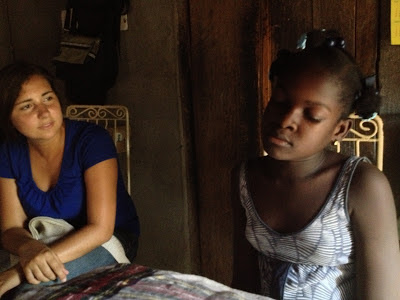 This blogpost and photo come to you from Coleen Higa, MBB Office Manager, who visited our Haiti projects recently:
This blogpost and photo come to you from Coleen Higa, MBB Office Manager, who visited our Haiti projects recently:
It was such a delight to visit our
scholars in Haiti last month!
The
slender young scholar who shows us into her home is vivacious, with lively,
intelligent eyes and a quick smile. Christelle is eager to introduce us to two of the cousins with whom she lives, and to her
aunt, the matriarch of this apricot-walled home.
Many
people returned to Gros Morne after the 2010 quake which devastated Port-au-Prince. Like our young scholar and her cousins, tens of thousands lost loved ones in that disaster: parents and grandparents, sisters and
brothers. Those who managed to survive remain haunted by memories of
being buried in rubble or hearing the cries of those not quite so fortunate.
Christelle’s
aunt exudes warmth and solidity and strength. Like so many others throughout Haiti, without hesitation she gathered up the
young after the disaster, gave them refuge, made them safe. With the support of people like you in the Mercy Beyond Borders network, girls
like Christelle will learn to FLY!















.JPG)
































